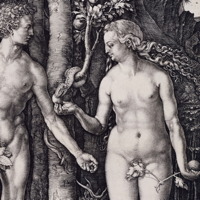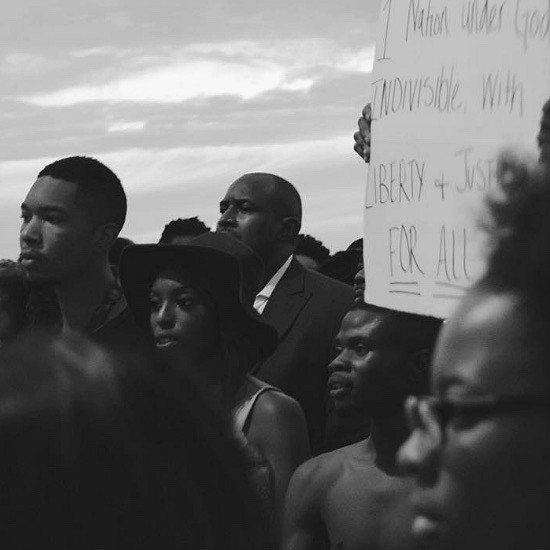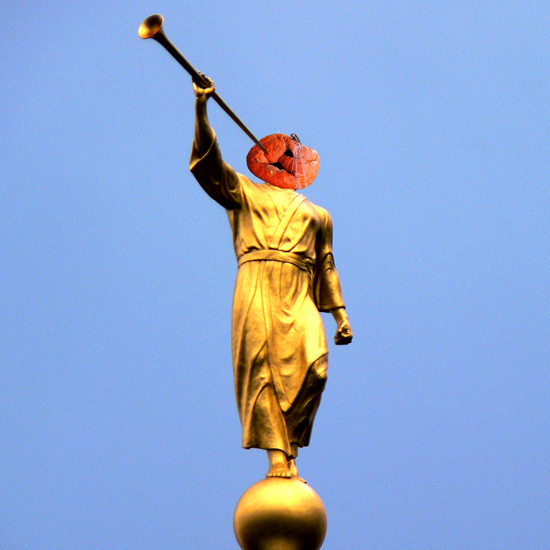The fundamental myth of the Judeo-Christian tradition has a distinctly patriarchal tone to it, justifying all the chauvinism in the elaborate myth-making that follows from it. Eve and Adam, we are told by the tome, are placed in paradise, and then Eve ruins everything.
I’ve asserted before that Mormonism provides us with a promising revision of that story—an early nineteenth-century transmogrification that elevates Eve’s role in the affair. Never mind how the text that provides this revision came to be (not that this isn’t an interesting issue). Holy Mormon writ that dares to defy the Bible by adding to it tells us that The Fall is a good thing for everybody. For Mormonism, there’s no existence for the rest of us, without the choice that Eve makes. So, thank goodness she opted out of paradise.
It was a promising revision, back in the 1830’s. And it wasn’t without any effect. But LDS-Mormons have, perhaps, these days, mostly put behind them the most positive, the most progressive possibilities of the story.
In fact, LDS-Mormons get at least five versions—or partial versions—of the story of Eve and Adam, and have enshrined the most complete version in their holiest rites. The first two versions, of course, are everyone’s, as we get the Elohist and the Yahwist renditions in the first couple chapters of Genesis. The former seems a bit less masculinist than the latter, which insists—against the former—that Eve was made of a portion of Adam. It’s also the latter that pins the disaster on Eve.
LDS-Mormons also get versions from their Book of Moses and Book of Abraham. The latter doesn’t get as far as The Fall. The former lets Eve shout something like O Felix Culpa, and lets her explain that without her intervention, we’d all be in deep doo-doo.
The fifth LDS-Mormon version of the story is the most elaborate, and provides the spine for the sacred and exclusive rites of high LDS-Mormon culture. This version is rather a conundrum. The narrative leads to a participatory ceremony, in which, in the mode of Eve and Adam, LDS-Mormons commit to a life that will fix The Fall—ceremonial commitment that must live alongside the scriptural assertion that nothing was broken. Some LDS-Mormons have come to the conclusion that those commitments are so exploitative, so oppressive, and even so traumatic, that they can no longer go through the LDS-Mormon temple ceremonies. On this matter, see the ever-compelling series at feministmormonhousewives.
But the narrative itself—the story that leads to these commitments—does not anticipate the ferociously andro-centric character of the ceremony. Indeed, in some important ways, this version of the Judeo-Christian-Mormon foundation story stands at odds with what has become LDS-Mormonism’s dominant view of such notions as obedience to male authority.
Consider a scenario in which Eve makes a conscious decision to defy god by eating this presumptively forbidden fruit. Then, recognizing that she has put herself on the un-leavable path to mortality, she takes the fruit to Adam. He, of course, prophetic figure that he is, first says, No way. I’m obedient.
Rather than tricking him or manipulating him, imagine a scenario in which Eve articulates a perfectly logical rationale that Adam would be wise to eat and to follow her. I’m going that way, she says, and that’s how it’s got to be. You’re really going to mess things up if you sit here, by yourself, doing nothing at all, for obedience’s sake.
Imagine that Adam, the father of all, the patriarch of patriarchs, the prophet of his day, simply concedes to reason. No revelation, nor any evasive lamentation of the absence of it. No retreat into scripture. No citation of a handbook of instructions. Yep, he says to Eve, a woman with no authority, but with a perfectly good argument, you make a good point. Let’s do this thing.
This most elaborate of the LDS-Mormon Eve and Adam stories gives us a male authority who knows sound reasoning when he hears it, and who, because of sound reasoning, puts away his claim on permitting this or that action, so as to join the happy course of history that an otherwise-gendered person has set, brazenly and bravely, in motion.
That’s a remarkably encouraging revision of a story that has underwritten a lot of unnecessary misery in the world. It’s a story that indicates the promise that LDS-Mormonism may yet realize.












